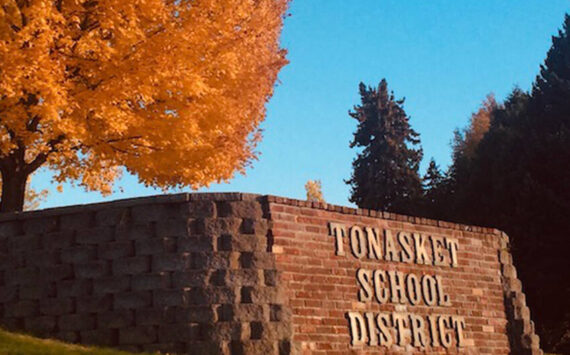TONASKET – The North Valley Hospital District’s efforts to bring down its warrant levels may be slowed by urgent infrastructure needs that have cropped up recently and may cost significant money to address. Chief Information Officer Kelly Cariker, who is also in charge of facility issues, reported on two issues that need to be addressed sooner rather than later.
In recent weeks, the nurse call system in a portion of the Extended Care facility has failed, while one of the hospital’s three boilers is inoperative.
“The (nurse call system) was put in in the mid-80s,” Cariker said. “There’s no schematics on it.”
Cariker said he’d pulled the failed portion of the system out and had it worked on by an outside vendor as well as working on it in the hospital’s own maintenance departement.
“We did everything we could to it and it still doesn’t work,” he said. “We’ve started reseraching prices on new systems, including wireless ones that would cost less.”
He said a wireless system may need a different level of approval.
“We’ve notified the state, and there are several things that (CEO) Linda Michel has had to do to ensure patient safety,” Cariker said.
The boilers are even older, he reported, having been installed when the original hospital building was constructed in the early 1950s.
Cariker said that while they are inspected regularly and have been maintained extremely well (he said the normal life expectancy of similar boilers is about 25 years), the cost of repairs is not only going up but there is no guarantee how long said repairs would be able to hold.
“In order to fix this we would have to have a certified welder come in, weld it up and certify it,” he said. “The initial quote on that is $8,000 and it was already done once several years ago. So there is no telling how long it will last.
“Inside … (there) are tubes that the hot air goes through… Two of the tubes are bad. These have never been re-tubed, so that says a lot about our maintenance department and how well they have kept the balance of the chemicals that go into these.”
He said the heat exchanger that feeds hot water to the laundry is ruptured and leaking steam as well.
“(That) is a very bad sign,” Cariker said. “To replace that is about $15-20,000. … It’s been well-maintained, but it’s all manual controls with valves, levers and gauges. Nothing is efficient, nothing is computer controlled. They’ve done as good a job as they can.”
Cariker recommended having an investment grade audit done on the boiler system to ascertain the cost of replacing it before it failed altogether. Getting something done before fall was critical, he said, as without the one boiler it won’t be possible to adequately heat the buildings.
There are a variety of possibilities with which to replace the current system – the most expensive of which, geothermal, would in the long run save significant money in fuel costs.
“They would audit what we’re doing, how much we’re spending on manpower, chemicals, and then make a recommendation,” he said. “(They would cost) each one out so we could evaluate what it would take to replace and run it.
“They would break it into three phases – scope, cost and savings – if we chose to move ahead, they would handle the construction and pricing. They would also give us a guaranteed maximum to get the system installed. If they go over, they eeat it; if they come in under we get it back.
Cariker said that having an emergency declared could speed along the regulatory process, particularly with the Department of Ecology, in order to get something done by Fall.
“So, now is the time,” said commissioner Dick Larson.
“Now is the time,” Cariker said. “I realize warrants are going the right way and we’re on the verge of selling the clinic, but potentially this could be a good sum of money.”
“We’re facing an emergency situation,” said commissioner Lael Duncan. “We may have an opportunity to contact our representatives because the legislature is back in session, in terms of special funding. We clearly cannot ignore it.”
“I agree we need to have the assessment done and get those prices,” Michel said. “But we also need to purchase a new nurse call system in the assisted living, so we have to think about that too.”
The commissioners unanimously approved Cariker’s request to move ahead with the assessment.
Other items
As noted above, the hospital district is expected to sell its Oroville Clinic building as soon as terms can be negotiated with a buyer.
A public hearing was opened at the start of Thursday’s meetings, but lasted less than a minute as there were no public comments offered.
Attorney Mick Howe outlined the process the board had gone through to get to the point where the building could be sold.
“The statutory process … requires a number of steps,” he said. “The public hearing was one. You have gone through that process, and that was widely posted, far more than the minimum…
“You also have to pass a resolution indicating the property is no longer needed and selling it would further the purpose of this hospital district (which was done Thursday).
“Completing the third formal step involves having the three appraisals completed … so once you have adopted this resolution you are free to sell the property.”
The board passed that resolution, and a similar one authorizing Michel to conduct negotiations on the sale of the building. Howe said the average of the three appraisals came to about $615,000, and by law the sale can’t be made for less than 90 percent of the average of the appraisals.
Noreen Olma reported that the roster of veterans enrolled through the Tonasket VSO office topped the 600 mark in April. With current staffing and funding levels, she said it will take about 1000 to be enrollees for the program to reach the break-even mark.
The Board of Commissioners also received its annual financial audit from Dingus, Zaracor and Associates, which will be summarized in more detail in next week’s Gazette-Tribune.




